Today’s farming industry is just that…a huge industry. Nearly every aspect of America’s food supply chain has become highly concentrated and is controlled by just a few mega-producers. This growing corporate control has unfortunately been a detriment to farmers, workers, our health, the environment, and the billions of animals who feed us.
To put it in perspective, as of 2015, 66 percent of all hogs were slaughtered by the four largest meatpackers, up from 34 percent in 1980.
While The Farm System Reform Act would not ban the cruel and extreme animal confinement practices that industrialized farms represent, it would put an outright ban on our largest factory farms and finally put the brakes on this mega factory system.
What this proposed bill would do:
-
- Ban any new CAFOs and phase out all existing CAFOs by 2040.
- Hold large meat corporations responsible for the harm caused by the factory farms that raise animals
- Provide a $100 billion voluntary buyout program for contract farmers to transition away from factory farming
- Impose stricter environmental standards
- Help to protect independent family farmers and ranchers
- Protect livestock and poultry farmers from retaliation if they raise concerns about their contracts or join together in grower associations
- Prohibit meatpackers from owning livestock more than seven days prior to slaughter or using unfair contracts
- Prohibit USDA from labeling foreign imported meat products as “Product of USA”.
The negative impacts of CAFOs (concentrated animal feeding operations) are felt far and wide: For those living in proximity, the effects range from an assault on olfactory senses to environmental consequences like pollution of ground water sources and air pollution, both of which result in negative impacts on health.
In addition to pollution, there are the broad societal damages wrought by CAFOs, including the highly reported impacts on workers and the quickly vanishing smaller family farm, enterprises which are quickly disappearing as they do not have the capital to compete with the huge, national corporations whose domination of the industry is ever growing and expanding.
And, last, but not least, there are the animals themselves—poor, mistreated creatures whose lives, from birth to death, are filled with unimaginable suffering unbroken by a single day in which they live life as nature intended.
What is the Farm System Reform Act?
The Farm System Reform Act (FSRA), introduced in the Senate by U.S. Sen. Cory Booker (D-NJ), on January 21 of this year (and thus far co-sponsored by U.S. Sen. Elizabeth Warren and U.S. Sen. Bernie Sanders), and subsequently, introduced in the house by Rep. Ro Khanna (D-CA) on May 7, is an attempt to address these issues and others endemic to our nation’s system of raising animals for food.




U.S. Rep. Ro Khanna (Joseph Geha/The Argus)
The Act has two distinct parts: The first deals with CAFOs directly, and the second modifies and amends the Packers and Stockyards Act.
1 – Amendment to the Packers and Stockyards Act: Part of this new bill aims to amend the Packers and Stockyards Act by strengthening the position of family farmers and ranchers in their dealings with buyers to create a fairer, more level playing field in their competition with the large, corporate farms that are making it almost impossible for them to compete and, thus, survive. One of the amendments to the Packers and Stockyards Act that will be visible to us and the public is a change in labelling requirements. Presently, the USDA allows beef and pork to be labelled “product of USA” even when the animals were raised in other countries. This is clearly advantageous to the big players in the industry and to the disadvantage of smaller, local and family farms which raise their own animals. And it is not fair to the American consumer who is rightly concerned about the source of the foods they and their families eat.
2 – Moratorium on CAFOs: Regarding CAFOs, perhaps the act’s most important provision, is a moratorium on the construction or expansion of such operations from the date of the act’s enactment. Furthermore, CAFOs would finally be banned in their entirety after January 1, 2040.
The definition of what constitutes a CAFO is taken directly from the EPA (Environmental Protection Agency), which classifies CAFOs (animal feeding operations) as small, medium, and large. This classification means a lot of producers that most of us would consider to be quite large are not counted as CAFOs. For example, you could have 2,499 pigs, 9,999 sheep, 54,999 turkeys or 29,999 laying hens and not be classified as a large CAFO. For farms with liquid manure handling systems, where the concentration of dry matter ranges from 2-12%, the numbers are even larger, allowing, for example, up to 125,000 chickens.
So, the proposed law would immediately halt the development of new CAFOs and expansion of existing ones and bans them completely 20 years from now.
Other Important Factors of Proposed Bill
Funds to Transform The Industry
One important aspect of the law is that it would direct the Secretary of the Treasury to provide $10 billion per year to the Department of Agriculture for the purpose of encouraging and aiding farmers to transition their properties from CAFOs to other uses and activities including, presumably, the raising of animals in an environmentally (and, hopefully, more humane) manner. The expectation, should the bill become law, is that these funds will expedite the dismantling of CAFOs.
More Responsibility for Environmental Impact
Another, probably less publicized, section of the bill deals with “integrators,” large, vertically integrated conglomerates that dominate animal agriculture. While they control virtually all aspects of the raising of the animals and actually own the animals, the real work is contracted out to the farmers. The Farm System Reform Act would make these entities responsible for many of the large environmental impacts of factory farming—the disposal of dead animals, manure and waste; the discharge of air pollution; and the pollution of ground water.
Additionally, CAFOs would be required to get permits from the relevant authorities for any discharge of pollution beyond their borders. While this portion of the bill does nothing directly to limit or get rid of CAFOs, it does make the real powers beyond their operations responsible for their environmental impact and, thus, deprives them of some of their competitive advantages. Currently, CAFOs discharge 1.4 billion tons of waste per year with no requirement to maintain treatment facilities.
Proposed Violations
Punishment for violation of the proposed law’s moratorium on the expansion or creation of CAFOs or the continued operation of a CAFO after January 1, 2040 would be subject to “a civil penalty of up to $10,000 per violation, per day, in addition to any other applicable statutory civil penalty or monetary damages assessed pursuant to any State common law judgment.” (section 102 (c)).
Impact on Farmed Animals
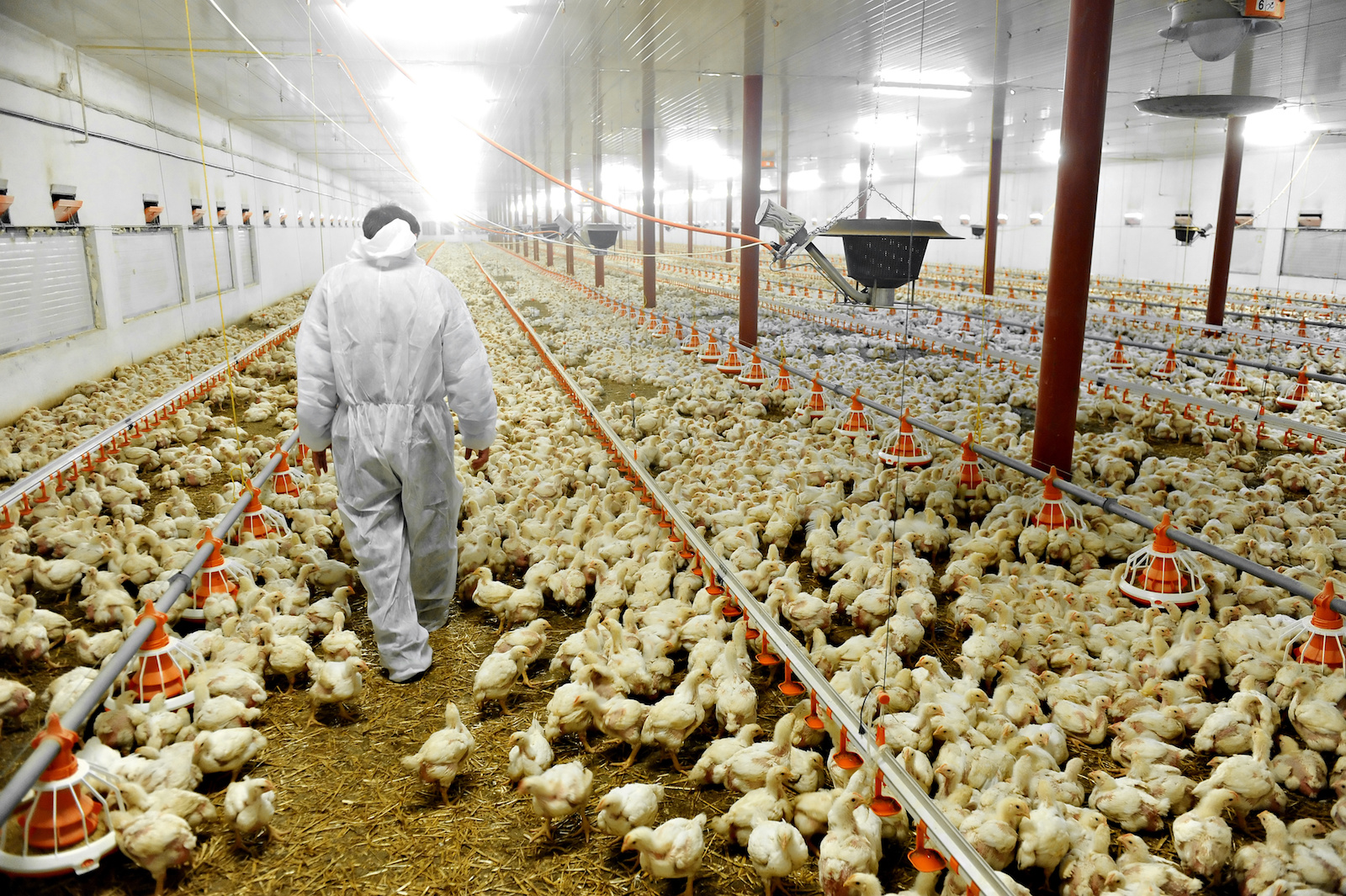
How does this law affect the lives of the animals that are at the crux of all this?
First, in evaluating the potential impact it may have, we need to understand that there is NO federal legislation of any consequence that controls the treatment of farmed animals.
This legislation doesn’t do that either. Rather, it works from the assumption that the most deleterious impacts of CAFOs are the result of their enormous size and the lack of responsibility for the degradation caused by their operations. By making integrators, the large conglomerates that control animal agriculture in this country, responsible for the resultant damages, and making expansion of their current facilities illegal, it is hoped that these changes will accrue to the benefit of smaller operations. Certainly, if this act becomes law, any growth in consumption (it’s happening whether we like it or not) would have to be from smaller operations.
The unspoken hope is that smaller and, therefore, less capitally intensive CAFOs and more non-CAFO facilities will lead to more humane treatment of the helpless animals which are, after all, the real subject of all of this. It seems logical, but is hardly a guarantee.
What You Can Do

If this issue is important to you, you are encouraged to contact your Congressional Representative and Senator. If you are sickened by the environmental degradation, the decimation of family farms, the negative impacts on human health and the cruel and systematic abuse of animals, then let your voice be heard. Whatever your opinion, if this is an issue that matters to you, it is your responsibility to make your support known to those in power with the ability to affect change.
Our government works for us. Please contact your rep today and make your voice count.
Find and Contact Your U.S. House Representative
Find and Contact Your U.S. Senator
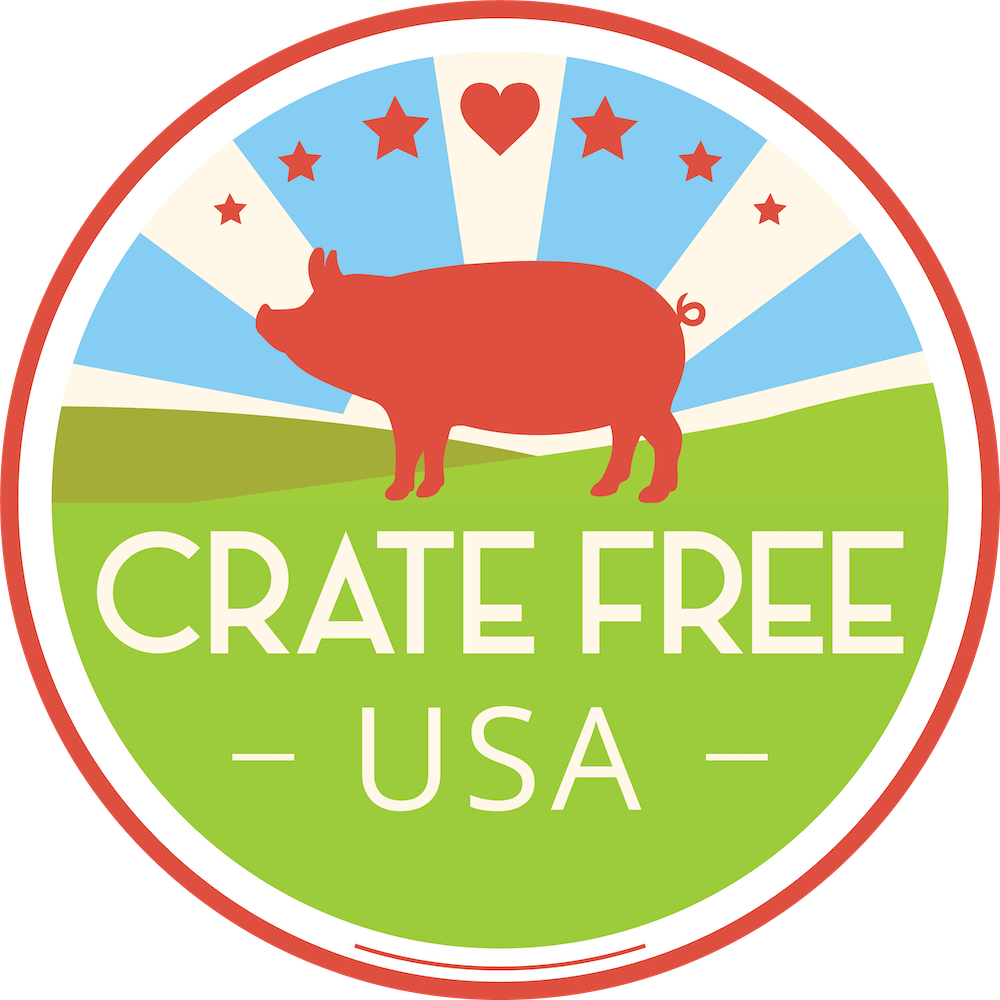
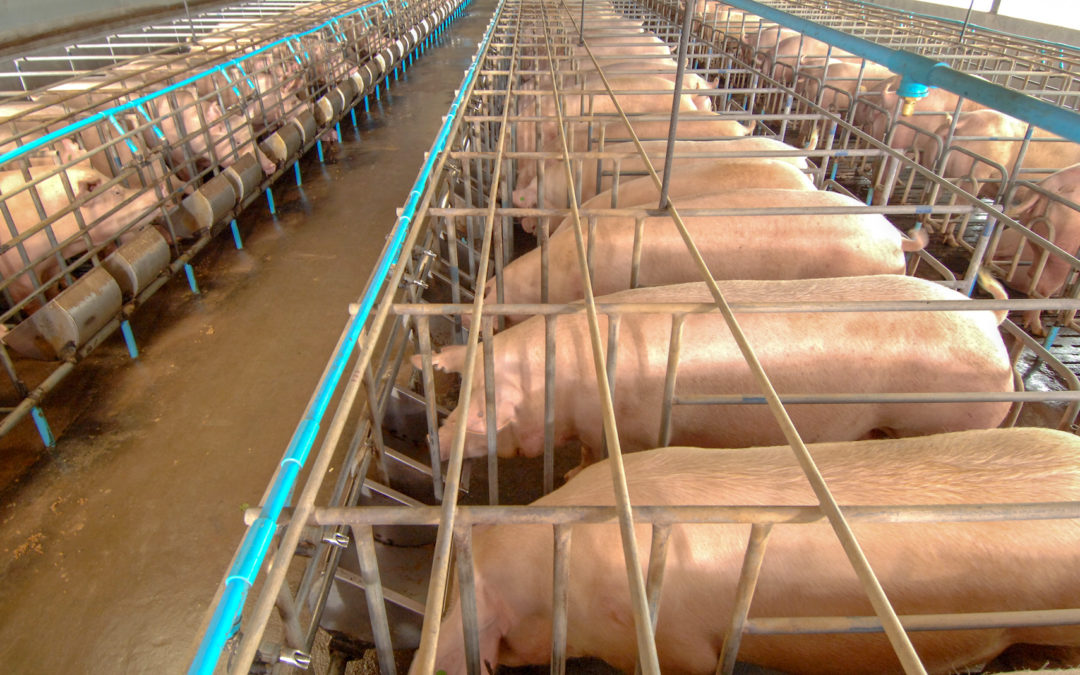
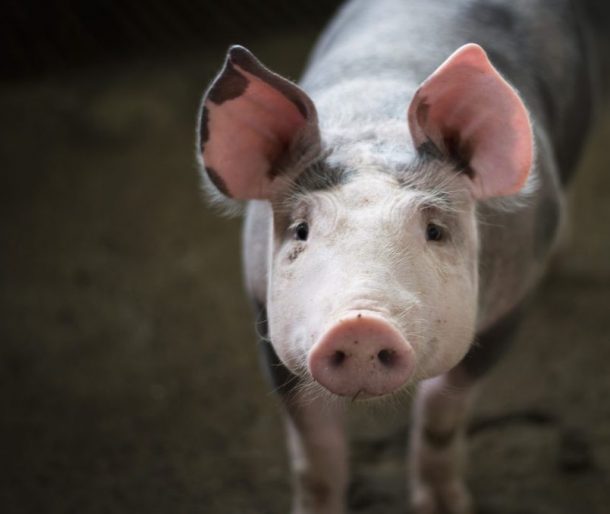

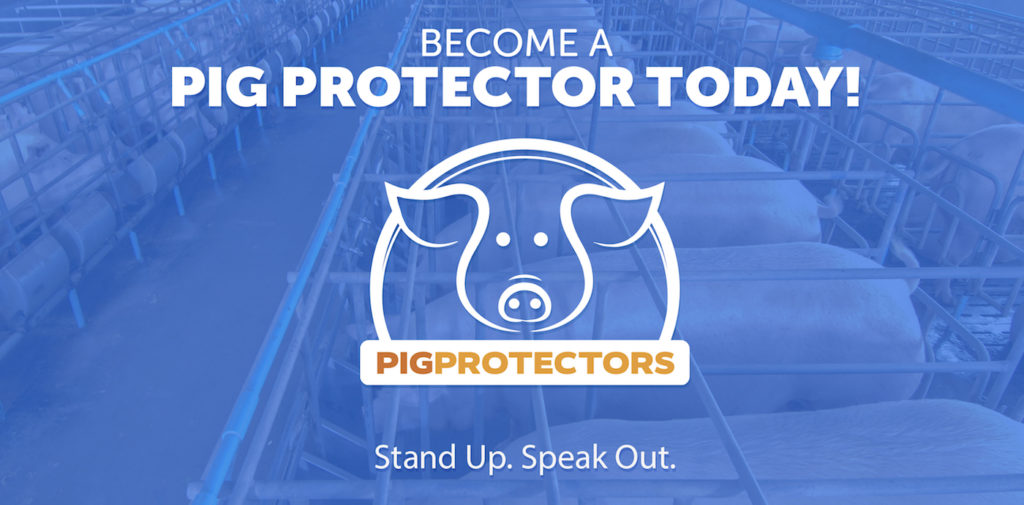
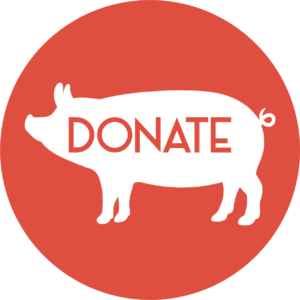
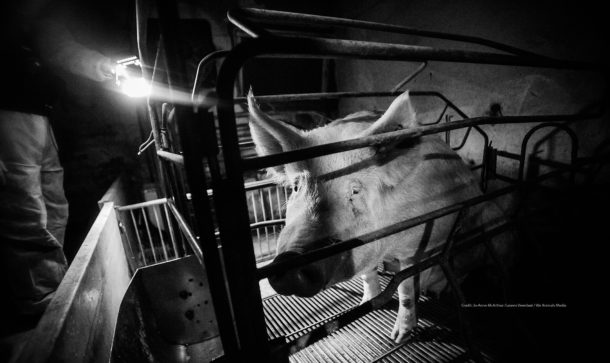
Nothing here evaluates the main driver of consolidation & concentration in the industry. Gov’t subsidies drive most, if not all, industry consolidation. Subsidies include the income tax free Farm Credit System which loves to provide funding to mega farms but not family farmers, crop insurance subsidies which allow mega farms access to 100% input financing at no risk to the owner nor their banker, massive direct gov’t cash payments which the mega farms use to continue expansion, and the Section 179 write off option for the mega farms to avoid/postpone income tax obligations indefinitely. And these are only 4 subsidies which come to mind…there are many more if one cares to look. What does the labor subsidy amount to? Expose the subsidies, stop them, and a fair market will cure many ills.
There is not one stupidity or lame brain idea government will resort to in order to defend or prop up another lame brain idea/stupidity. When comes to governmental insertion of ideas and policies…well.it becomes a self licking ice cream cone.
If one looks at the amount of good quality farm land in each State that has been turned into housing developments its easy to see why mega ag developed so quickly. We may not be able to turn things around….you need land for small farms to exist. Yes there’s places like VT and parts of Maine where small farms still exist but does anyone have a clue what it costs to start a small family farm?? When a piece of tin roofing costs 50 to 75.00 good luck making repairs to a barn…you got sell alot of eggs or tomatoes to pay for it. As a society we should should have thought all of this through a long time ago….rb
Mr.brooks. I am a small beef producer in n vermont. Grass fed chem free. We r stifled at one year appointment ahead to process at over 1.10 # to pack. Insane.
Thank you ! And bernie. Scott in vermont. Beef producer. Grass fed.
Thank you!
This legislation is so important going forward and long overdue.
What a load of shit. Legitimately screwed up politicians passed legislation that allowed corporate farms to be the only way to make a damn profit. Now these xxxx want to pass legislation to [screw] up food producers at the top end of all farming. What a joke.
Fix the taxes and subsidies that killed small farms and family farming.
Once government starts to control one part a private sector enterprise they eventually control it all. Once they control the food ,they control you.
I believe in small farms and feel large farms are not good
Look who’s presenting this bill. A person who would like to do away with all livestock agriculture. A person who has said it would be best if we were all vegetarians.
Without animal agriculture, more nonorganic fertilizer must be used for food production
As to organic food production, which is totally your choice, know that it takes 3 times as as much water and seven times as much fuel to produce the same crop. It also increases solid erosion because of so much more mechanical cultivation to control weeds.
Not true that organic farming is worse the mega-agri-farming. In fact it’s the opposite in all measurable metrics if it includes no-till farming.
We, the people, are the government and we should be governing as such. We can definitely turn out food supply into environmentally, cheaper, safer, worker friendly, less cruel to animals and more productive, et al.